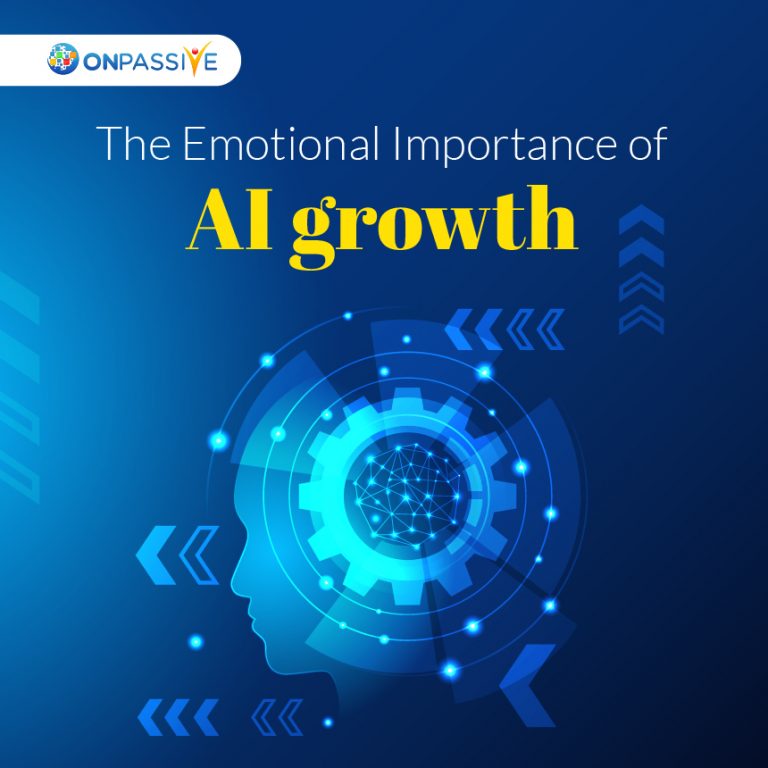
In this high-powered technology, now it’s impossible to go live without Personal Computers, Laptops, Smartphones, and other electronic machines.
The generality of digital technology and continuous effect has altered life-styles to a point where dependence on technology has become extensive. It made interaction with technology increasingly complex.
On the other hand, humans struggle to communicate the correct emotions through electronic gadgets to understand one another, whereas the emotional importance of AI Growth has taken a vast jump.
Face-tracking and recognition application has advanced capability to analyze the minutest information of all facial expression.
Some advanced emotional recognition systems are differentiated between real and virtual emotion.
Emotional Artificial Intelligence
A business that uses emotional Artificial Intelligence technology to capture user’s emotions in real-time.
Emotional Artificial Intelligence is a technology through which facial expressions can be decoded, and voice patterns can be analyzed, e-mails are scanned to understand the tone of language, eye movements are watched, neurological immersion levels are calculated.
For companies, this technology proves to be a game-changer as it helps them understand their customers deeply and make real/personal connections.
However, as businesses explore the budding emotional Artificial Intelligence technology, the associated risks cannot be disregarded.
Individuals consider this as an act of privacy invasion, bias, and emotional manipulation.
The need for transparency and responsible usage of personal Artificial Intelligence data will be paramount as customers understand how this data is being used after it is collected.
Emotional Artificial Intelligence for new opportunities
For technologies and communication companies, the adventure of emotional Artificial Intelligence, the pool of opportunities has cleared.
A new form of data known as “emotional data” is being created, consists of biometric and psychological data points aggregated through
- Text analysis,
- Eye movement,
- Voice recognition
- Emotional detection
- Heart rate.
For a decade, while several tech giants and start-ups have been investing in emotional Artificial Intelligence, the evolving technology is now also a part of various commercial deployments as well such as
- Digital Voice Assistants
- Call centers
- Cars
- Smart devices like smartphones
- TVs
- Fitness/health trackers
- Robotics.
Emotional Importance of AI Growth can help businesses understand how customers feel about them and their products or services.
Even though the technology for emotional Artificial Intelligence is rising, this topic’s discussions are increasing continuously, indicating that personal data and AI will be crucial for futuristic.
Emotional Artificial Intelligence has the potential to release a new universe of possibility and opportunity.
How dynamic AI affects the company?
This era of emotional AI and companies across the universe is preparing to adopt. A business that is brainstorming the process of data collection, data analytics rules, and the business models to support them.
Consider the following four factors for emotional insights:
- Transparent
- System designing
- Data usages
- Privacy rights.
This sense of responsibility can’t be shrugged off as responsible actions today can prevent future consequences. Without correct responsibility measures, businesses can lose their customers’ trust and squander the opportunity to innovate and boost growth by harnessing emotional AI’s power.
Top emotional Artificial Intelligence use-cases
Companies leveraged the capabilities of emotional Artificial Intelligence that enhances customer experiences and developments.
Some of the top emerging use-cases of emotional Artificial Intelligence:
1. Video game testing: During the testing phase, video game makers can analyze the emotions through facial expressions with computer visions to unveil critical insights about gaming behavior and provide feedback to improve the product.
2. Ed-tech: E-learning softwares can be developed to analyze a child’s emotion and tweak the course/task according to his/her behavior. If a child shows frustration for a complex task, the program adapts and refreshes the task with a simple thing. Such learning systems can help autistic children recognize other’s emotions easily.
3. Health-care: Using emotional AI, health-care health-care workers can quickly diagnose mental health issues such as depression and dementia using voice analytics.
4. Safety-in-cars: Using emotional Artificial Intelligence technology, automotive companies monitor the emotional situation by using computer-vision technology to trigger alerts in drowsiness or extreme emotions such as anger and frustration.
5. Employee-care: Gartner reveals that demand for employee safety solutions is rising continuously. Emotional AI can help companies analyze their employees’ anxiety and stress levels and help them out.
6. Call-centers: The call center companies can better handle an angry customer if they detect a customer’s emotion beforehand and re-route him/her to a well-trained professional. This professional also monitors the conversation in real-time and adjust accordingly.
7. Fraud-detections: Through voice analysis, companies in the BFSI industry can detect the real intentions behind a customer’s word/claim. Approximately 30% of users have agreed to lie to car insurance companies to get insurance money (Independent surveys).
Dangerous effects of emotional Artificial Intelligence
Even though emotional AI has many hurdles, there are potential disadvantages too.
People are foremost concerned about their privacy, and the risks are associated with being tracked online.
Another concerning factor is the incapability to analyze a vast stream of human emotion.
The current capabilities of emotional Artificial Intelligence are not advanced. Irrespective of this, the technology is currently capable enough to be used for commercial deployments.
Summary
Emotion plays a vital role in our daily lives. If emotional AI helps to communicate with more responsive and intuitive technologies, newer chances are explored.
However, specific barriers are adopted for this technology to remain, but the trust issues are associated with emotion AI technology.
In one of its consumer surveys, the company said users feel more comfortable with voice analysis than capturing emotions via camera.
The global emotion insights market are in the emerging stage is predicted to increase to $23 billion by 2023 (Market Research Future).



Emambu Doris
3 years ago
Shirley Dotson
3 years ago
TARUN KUMAR JENA
3 years ago